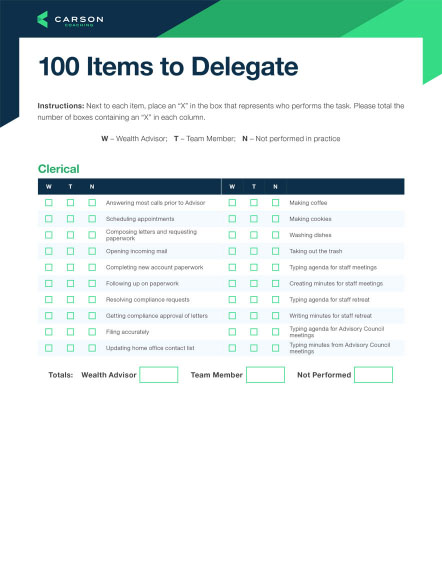Sometimes mindlessly scrolling TikTok isn’t a total waste of time. It might actually give you some insight into how the different generations work.
One TikTok I recently watched depicts the reactions of the different generations being asked to work through lunch.
Gen Z: “Uh no. I’m not working through lunch. That’s giving toxic, no work-life balance. No. I’m going to enjoy my lunch.” Then the worker gets up to go eat lunch.
Millennial: “Why are they scheduling this during my lunch hour? This is literally the one hour I get to myself.” But the worker brings his salad to his computer and joins the meeting.
Gen X: “Oh yeah, no worries. I was going to take lunch a little bit later anyways and I know this call is super important.” Then this worker joins the meeting.
It doesn’t matter which way you’d react. And even though the TikTok might give you a little chuckle, it does offer some insight into things that are important to next-generation stakeholders, specifically Gen Z.
Why Attract and Retain Gen Z?
If you want your business to be around for years to come, you’ve got to have people to run it. And with Gen Z set to become a large share of the workforce in coming years, it’s critical to understand who they are, what’s important to them, and how to attract and retain them.
And the world is changing. There’s commonly been a first-in-last-out mentality. Meaning, you were considered the hardest worker if you were the first one there before your boss and the last one there after your boss left. We’re starting to see a shift to the importance being on impact, versus time.
Another shift in the world to consider is the rising cost of living. We’ve seen dramatic increases in the cost of living, the cost of homeownership and the cost of goods and services. These things are working against the ability for these generations to feel financially secure.
Lastly, there’s a lot of competition for talent out there. It’s a lot easier to start a company as a solopreneur today than ever before.
What is Important to Gen Z?
Gen Z is a diverse generation, with 48 percent of them identifying as something other than white, according to Pew Research Center. CFP Board reports that Gen Z values diversity and are digital natives. They are at the beginning of their financial journey, but even though building wealth is important, they want transparency and meaningful work.
“A lot of our generation isn’t just focused on money,” says Jabin Moore, associate private client manager at Carson Group who joined the company right after his graduation from the University of Nebraska, Omaha in 2021. “We want to feel like what we are doing has a purpose and is positively contributing to the world around us.”
This generation also wants more flexibility in where and how they work. They value diversity. And because they don’t separate their job and values as much as other generations used to, they want alignment with their personal values and their work. They value taking care of their planet, diversity, social justice and being good stewards beyond just working with clients. They want their workplace to value these things, also.
“Gen Z workers have lost patience with “neutrality” in terms of issues that they care about,” said Dr. Julie Ragatz, vice-president of NexGen and partner development programs at Carson. “There is no ‘corporate neutral’ on questions of social justice and other areas of concern.”
They also want inclusive atmospheres where they can connect with their colleagues.
“The atmosphere is an important piece,” says Jalen Blackmon, Associate, Partnership Development at Carson Group. “It’s hard to work somewhere where you don’t click with anyone and you will probably leave that role.”
They also want clear career paths and support from their managers.
“A defined growth plan is needed,” noted Isaiah Johnson, Associate, Partnership Development at Carson. They want “the plan to get to where you are going and what position you may be able to move into next based on what you’re currently doing and what you want to do.”
Lastly, they’re more willing to be collaborative because they grew up in team-based environments, Ragatz said.
How Can We Attract and Retain Them?
You can take the information from the previous section and develop several programs and benefits designed with those in mind to help you attract and retain Gen Z.
Keeping the current state of the economy (rising prices of everything) and the desires and preferences of Gen Z, here are some specific ideas to implement in your firm:
Engage in human-centered leadership. We are humans first – before we are business owners and before we are employees. Fast Company reports that human-centered leadership requires you think of your stakeholders as people with multifaceted lives first, before you think of them as employees. They aren’t easily replaced cogs, they are people with valuable experiences who have struggles and make contributions simultaneously. Gen Z is quite human centered, Ragatz notes.
“They’re willing to be candid about mental health issues and the way their lives and obligations impact their abilities in the moment – both negatively and positively,” she said. “Plus, they are willing to be kind and empathetic regarding the extra work needs of their peers and managers.”
Clearly define their role, career path and impact. Define clear growth and career paths for next-gen talent and don’t just focus on financial metrics when evaluating them. “The career path and how the firm supports your development is something I would like to know up front,” Blackmon said.
Incorporate your values into their roles and show them how the work they do aligns with their values.
“They want to see how their efforts promote outcomes that align with their values,” Ragatz said. Johnson added, “Seeing how what we do directly impacts someone, or even the company’s goals, is important. It’s hard to work in a place where what you are doing daily doesn’t contribute to the bigger picture.”
“Having a sense of purpose and an element of community engagement and giving back is really important,” Moore said.
Gen Zers don’t want to be on an island without a connection between their work and their life.
Implement flexible work schedules. In an industry where it’s vital to be in the office to learn certain things, we can still offer flexible or hybrid work schedules. I’m a remote employee, but if I had to go into the office here in the Dallas-Fort Worth area, I’d have to contend with the many toll roads. If someone lived in my area and had to be in the office every day, they’d likely have to pay $10 a day for tolls, not including gas and car maintenance. Flexible schedules can help alleviate some of that financial insecurity.
Offer benefits that make an impact on their lives. Bankrate reports that Gen Z has an average student loan debt of around $24,500. And college is getting more expensive every year, making it more likely that newer professionals will continue to enter the workforce in significant student loan debt. If you can swing it, having a benefit like contributions to their student loan repayment are highly valuable. At Carson, we are offered a taxable $100 a month to help us pay down our student loans. We cap it at $3,600. Other examples include tuition reimbursement and professional development stipends.
Provide learning and development opportunities. If you have an internal learning and development team, that’s great, but if not, offer your stakeholders opportunities to engage in learning and development via conferences, webinars, and LinkedIn Learning.
Implement diversity, equity, inclusion and belonging initiatives. Gen Z is authentic and values diversity in their workplaces. As such, they want to see that you value diversity. Do you nurture diverse talent? Are there more than just one or two underrepresented groups represented on your staff? These things matter to Gen Z.
“Being a minority in a corporation helped me realize that the more diversity, the better,” Blackmon said.
Have paid internship programs. Internship programs can help introduce you to more Gen Z workers and you can ask them questions and learn from them – especially if you don’t have any Gen Z talent on staff yet. Ask them for feedback on the company and environment and use that information gleaned strategically.
Stay on top of compensation. You don’t want to attract a Gen Z professional and they stay with your company many years only for them to find out that same position pays 50 percent more somewhere else. Provide compensation that is competitive with market trends, and not just in your area if possible.
All these things combined can help give you a better chance at retaining Gen Z stakeholders.
A New Perspective
We can learn from Gen Z and have better business outcomes, but it all comes down to shifting your perspective on certain things.
For example, Gen Z isn’t as willing to adhere to “norms” of behavior that don’t make sense to them or don’t align with how they perceive their contribution, Ragatz said. So shift your perspective to what’s “acceptable” based on your own experiences. It’s OK sometimes to wear jeans and a hoodie to work on non-client-facing days, Ragatz said. And that doesn’t mean you have to change how you dress, but shift to not evaluating employees based on things that don’t necessarily matter.
Consider the things we’ve laid out here to help elevate your business by way of attracting and nurturing new talent.
Ragatz advises, “Be willing to see how the Gen Z perspective works and can work better than the Gen X perspective – both in terms of quality of life and business outcomes.”


